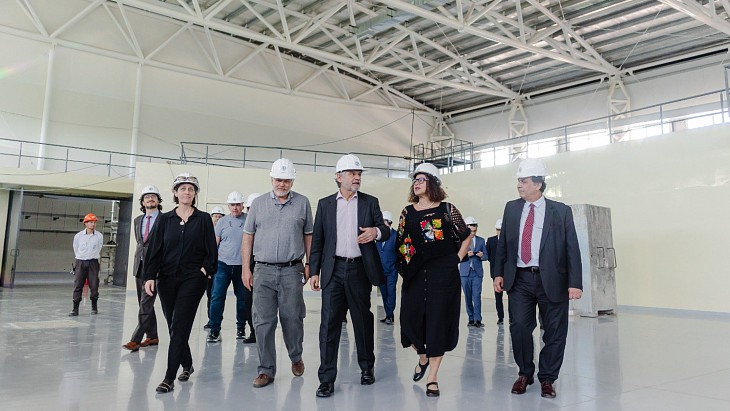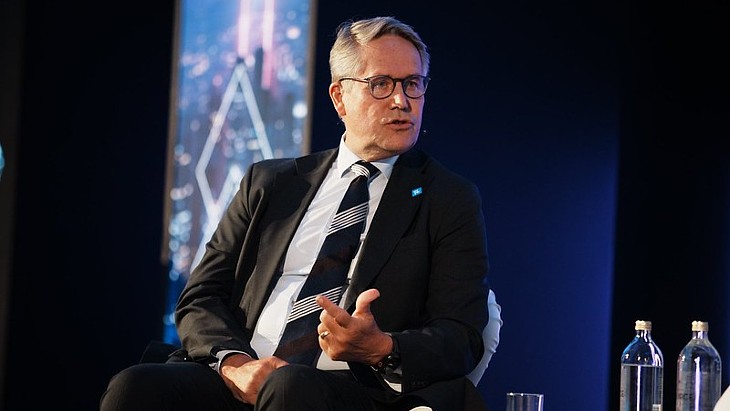CNEA President Adriana Serquis said the two countries had had existing agreements which had seen the establishment of the "RA-10, our multipurpose reactor, and the RMB (Brazilian Multipurpose Reactor) by Brazil as similar projects", adding that the new MoU builds on the cooperation on research reactors that has already taken place, covering bilateral cooperation in the field of nuclear medicine, irradiation testing of fuels and materials and research using neutron beams.
CNEN President Francisco Rondinelli said the two organisations had been working for the development of nuclear applications for peaceful purposes and said they "have a lot to cooperate" on in the development of the sector in both countries. He noted that the MoU includes a partnership with Argentina's Invap for engineering support for the RMB and its laboratory facilities.
Also in attendance for the signing, at the Ezeiza Atomic Centre in Argentina, were the country's Minister of Science, Technology and Innovation Daniel Filmus and Brazil's Minister of Science, Technology and Communication Luciana Barbosa de Olivera Santos, who said: "Argentina is internationally recognised for its competence in the development of radioisotope production plant projects and we want to have that experience in the construction of our Brazilian multipurpose reactor."
The RA-10 is a reactor for the production of radioisotopes for medical and industrial use, as well as for research. The 30 MWt open-pool research reactor will replace the RA-3 reactor, a 10 MWt pool-type reactor which began operations in 1967. It will produce doped silicon, a raw material for advanced electronic applications, and sources of industrial iridium "for the evaluation of the integrity and quality of large-scale constructions". The reactor is scheduled to be operating in 2025 and will supply 20% of the world's demand for molybdenum, one of the main radioisotopes used.
Brazil says that the RMB would reduce the cost of radiopharmaceuticals and also dependence on imports, with the aim of "expanding and democratising nuclear medicine" for people in Brazil. Invap signed the agreement in 2013 to build the two research reactors - one in each country - with the reference design to be the Open Pool Australian Light-water research reactor that Invap supplied to the Australian Nuclear Science & Technology Organisation. At the time it was estimated that between them, the two new reactors would provide capacity to supply 40% of the world's isotope demand.





_33584.jpg)
_82983.jpg)
_34792.jpg)
_16403_79272.jpg)





